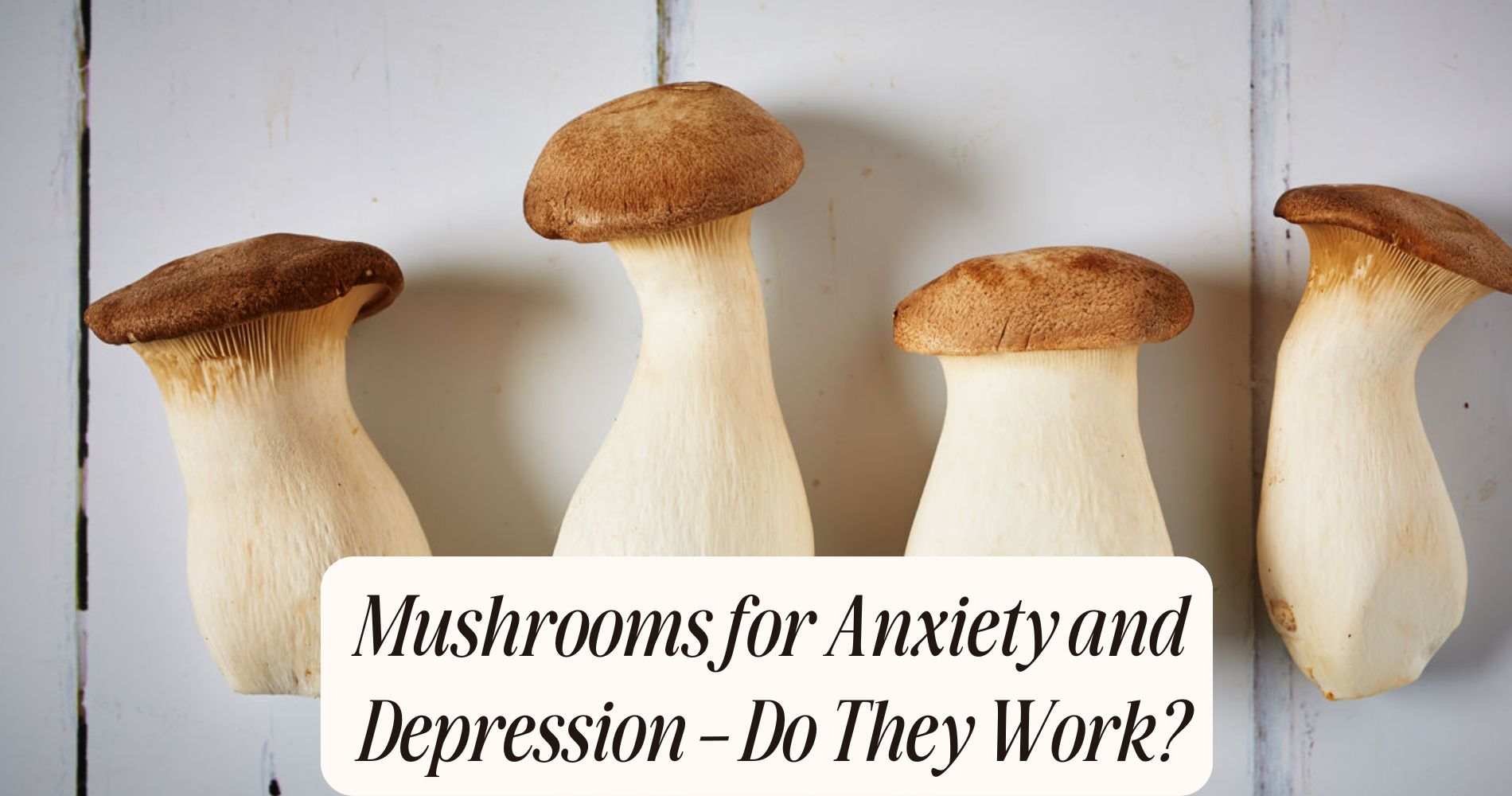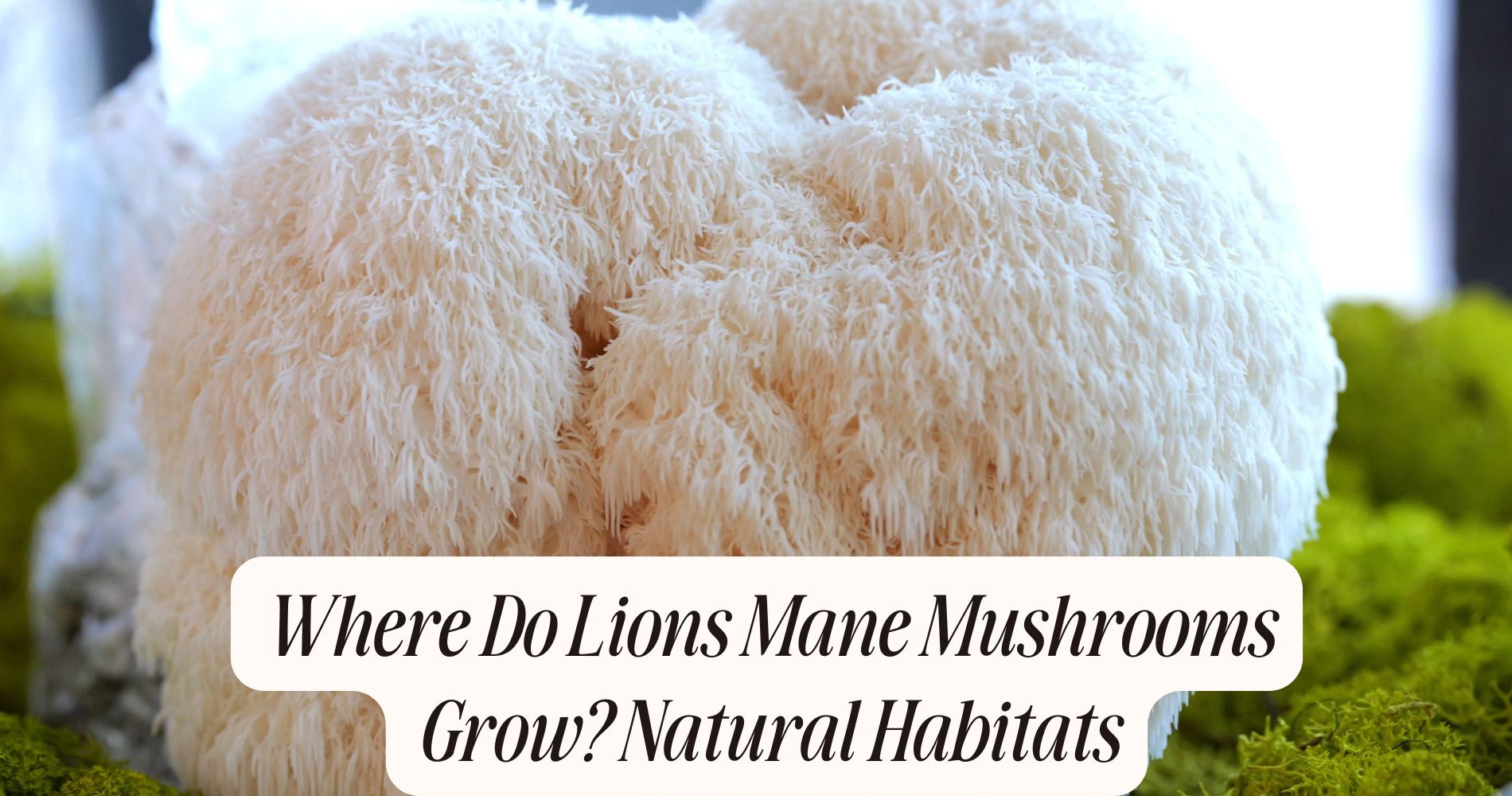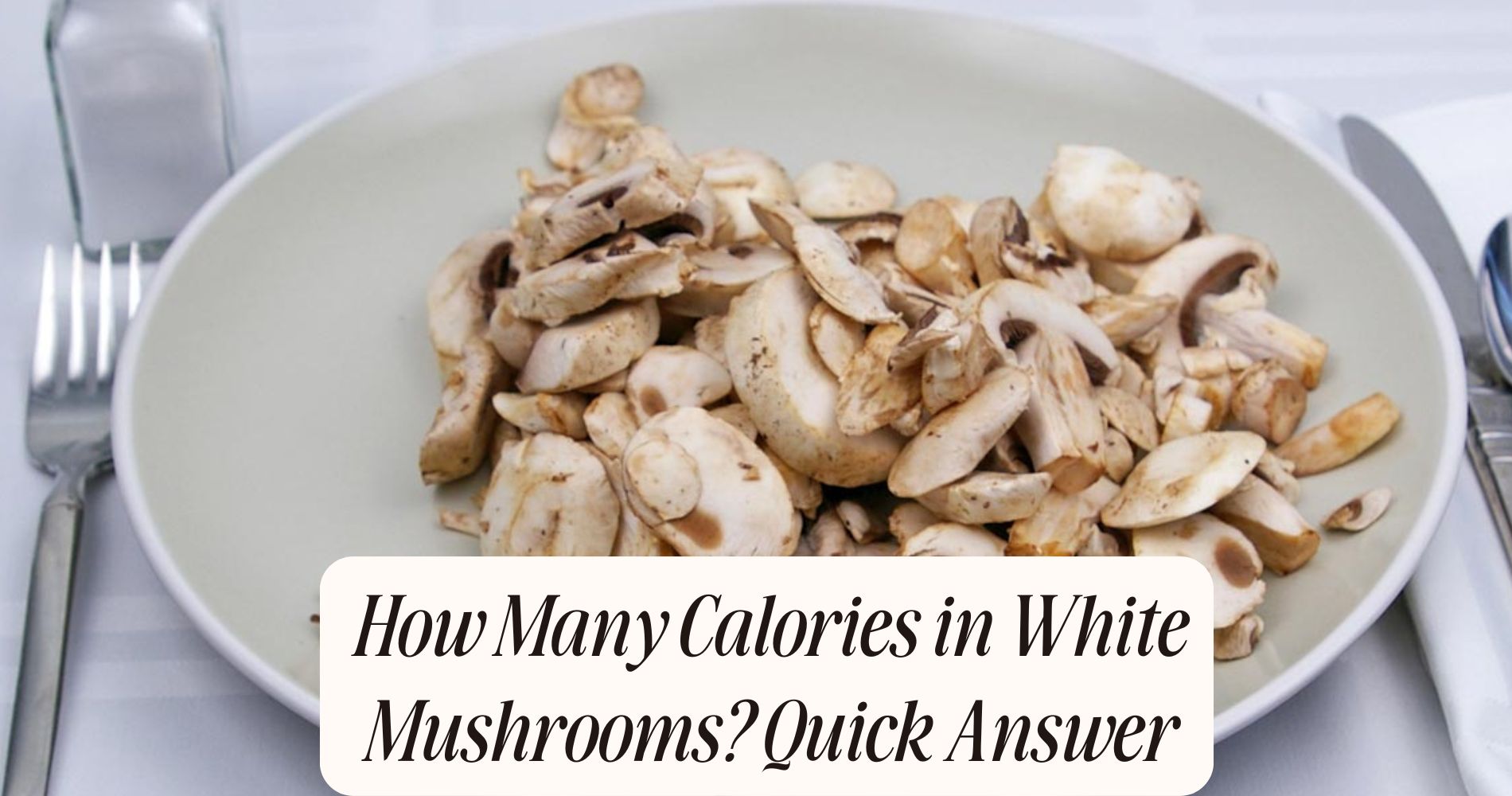
Mushrooms for Anxiety and Depression – Do They Work?
If you’re exploring mushrooms for anxiety and depression, certain medicinal varieties like Lion’s Mane, Reishi, and Cordyceps have shown promising neuroactive effects. Research suggests these mushrooms may help regulate mood by modulating neurotransmitter pathways, reducing oxidative stress, and supporting overall mental balance when used in conjunction with standard treatments. While they’re not a substitute for clinical care, they may offer complementary support. Always consult your healthcare provider before starting any supplement. Read on to discover which mushrooms may help, how to use them, and important safety considerations.
Understanding Anxiety and Depression
Although anxiety and depression often present with overlapping symptoms, each condition has distinct diagnostic criteria and underlying neurobiological mechanisms. You’ll notice anxiety disorders typically feature excessive worry, restlessness, and physiological arousal, while depressive disorders emphasize persistent low mood, anhedonia, and cognitive impairment.
Both conditions involve dysregulation of neurotransmitters, including serotonin, norepinephrine, and dopamine, but the patterns and clinical presentations differ. Clinicians assess symptom duration, severity, and functional impact to guide diagnosis.
Evidence shows that some individuals seek dietary supplements or herbal remedies as adjunctive approaches to conventional treatments. While these alternatives may offer perceived benefits, current research emphasizes the importance of evidence-based interventions.
Understanding the unique features of each disorder helps you make informed decisions when considering dietary supplements or herbal remedies for symptom management.
The Role of Mushrooms in Mental Wellness
While conventional treatments remain the cornerstone of managing anxiety and depression, emerging research highlights the neuroactive properties of certain mushrooms that may support mental wellness.
When you incorporate culinary mushroom varieties such as shiitake, maitake, and oyster mushrooms into your diet, you introduce bioactive compounds—like beta-glucans and ergothioneine—that exhibit antioxidant and anti-inflammatory effects. These mechanisms may help modulate neurochemical pathways implicated in mood disorders.

Advances in mushroom cultivation have optimized the yield and potency of these therapeutic compounds, making them more accessible for dietary interventions.
Clinical studies suggest that regular consumption of these mushrooms may contribute to reduced oxidative stress and improved neuroprotection, both relevant in the pathophysiology of anxiety and depression.
However, mushrooms should complement, not replace, evidence-based psychiatric therapies.
Lion’s Mane: Cognitive Benefits and Mood Support
Because Lion’s Mane (Hericium erinaceus) contains unique neurotrophic compounds, emerging studies associate its use with enhanced cognitive function and potential mood stabilization. You may notice reductions in brain fog, as Lion’s Mane appears to support neurogenesis and neural regeneration.
Clinical trials indicate that supplementation can improve memory recall, attention, and executive function, particularly in individuals experiencing mild cognitive impairment. Evidence also points to Lion’s Mane modulating inflammatory pathways and increasing nerve growth factor (NGF) synthesis, which may underlie observed improvements in mood and reductions in depressive symptoms.

If you’re struggling with cognitive sluggishness or persistent low mood, Lion’s Mane could provide adjunctive support. However, more randomized controlled trials are needed to determine its efficacy and long-term safety in psychiatric populations.
Reishi: Stress Relief and Emotional Balance
In addition to cognitive support, addressing the physiological drivers of stress remains essential for thorough mental health management. If you’re exploring adjunctive therapies, Reishi (Ganoderma lucidum) stands out due to its long history in traditional uses for stress modulation and emotional stability.
Clinical literature identifies Reishi’s adaptogenic potential, suggesting it helps regulate the hypothalamic-pituitary-adrenal (HPA) axis and modulates cortisol secretion, both vital in stress response. Evidence suggests that standardized medicinal preparations of Reishi may reduce symptoms of generalized anxiety disorder and promote affective balance by influencing neurotransmitter pathways, particularly GABAergic activity.
While not a primary intervention for major depressive disorder, you can consider Reishi as part of a broader integrative approach, especially when seeking non-pharmacological options for stress relief and emotional regulation. Always consult with a healthcare provider before initiating supplementation.
Cordyceps and Its Impact on Energy and Motivation
Although often recognized for its athletic performance benefits, Cordyceps (Cordyceps militaris and Cordyceps sinensis) also demonstrates effects relevant to mental health, particularly regarding energy levels and motivational drive.
Clinical studies indicate Cordyceps may support mitochondrial function and adenosine triphosphate (ATP) production, which can result in an energy boost and decreased fatigue.
For individuals experiencing depressive symptoms—where low energy and amotivation are common—Cordyceps supplementation has shown potential for motivation enhancement and improved daily functioning.

While the evidence base is still emerging, pilot trials and animal models suggest that Cordyceps might modulate neurotransmitter pathways implicated in mood regulation, including dopamine and serotonin.
If you’re struggling with persistent low energy or lack of drive, integrating Cordyceps under clinical supervision could be a pragmatic adjunct to conventional interventions.
Psilocybin Mushrooms: Research on Psychedelic Therapy
While traditional psychiatric treatments remain the primary approach for anxiety and depression, recent clinical trials have positioned psilocybin—the psychoactive compound in certain mushrooms—as a promising adjunct in therapeutic settings. You’ll find that psilocybin’s mechanism involves serotonin receptor agonism, which may modulate neural circuits implicated in mood disorders.
In supervised psychedelic therapy, patients experience guided sessions that can facilitate emotional processing and cognitive restructuring. Some clinicians are exploring microdosing benefits, where sub-perceptual doses are administered to potentially enhance mood and cognition without inducing full psychedelic effects.
Diagnostic criteria for major depressive disorder and generalized anxiety disorder have been central in selecting participants for these studies. It’s important to note that psilocybin-assisted therapy remains investigational, requiring careful screening and integration within established psychiatric protocols.
Scientific Evidence: What Do Studies Say?
Despite the early stage of current research, randomized controlled trials have demonstrated that psilocybin-assisted therapy can produce significant and sustained reductions in symptoms of major depressive disorder and treatment-resistant depression, as measured by validated scales such as the Hamilton Depression Rating Scale and the Montgomery–Åsberg Depression Rating Scale.
You’ll find that clinical trials also suggest benefit for anxiety, particularly in patients with life-threatening diagnoses, showing rapid and durable anxiolytic effects. While sample sizes remain limited, effect sizes are consistently large compared to conventional pharmacotherapies.
Anecdotal reports often describe profound improvements in mood and anxiety, but these accounts lack the methodological rigor of controlled studies. Overall, current scientific evidence supports further investigation, yet emphasizes the need for larger, multisite clinical trials to confirm efficacy and reproducibility.
Safety Considerations and Potential Side Effects
Evaluating therapeutic outcomes requires a balanced understanding of both efficacy and safety. When considering mushrooms for anxiety and depression, you must carefully adhere to dosage guidelines to minimize adverse reactions.
Clinical data indicate that inappropriate dosing can increase risks of gastrointestinal disturbance, headache, or, in rare cases, precipitate psychiatric symptoms such as anxiety exacerbation or paranoia.
Interaction risks are also significant, especially if you’re already using antidepressants, anxiolytics, or other psychoactive agents. Polypharmacy may potentiate serotonergic toxicity or altered drug metabolism.
Additionally, immune-modulating mushrooms like lion’s mane or reishi can cause allergic responses in sensitive individuals.

Always screen for personal or family history of psychiatric disorders or allergies before initiating any regimen.
Consulting a healthcare provider ensures tailored, evidence-based risk mitigation and monitoring for untoward effects.
How to Incorporate Mushrooms Into Your Routine
Integrating mushrooms into your therapeutic regimen requires a structured approach grounded in current clinical evidence. Begin by identifying the mushroom species with documented efficacy for mood disorders, such as Lion’s Mane or Reishi. Evidence indicates that consistent administration and precise mushroom dosage are critical for therapeutic outcomes.
Standardized extracts or capsules can help you achieve accurate dosing, minimizing variability and ensuring clinical reliability.
You can also incorporate mushrooms through culinary uses, such as adding them to soups, teas, or stir-fries, although it’s harder to control dosage using this method.
Monitor your response to the intervention using validated scales for anxiety and depression, such as the Hamilton Anxiety Rating Scale. Always maintain a symptom diary so you can objectively assess any changes in your baseline mental health status.
Talking to Your Healthcare Provider About Mushrooms
When considering the addition of medicinal mushrooms to your treatment plan for anxiety or depression, it’s essential to consult your healthcare provider to guarantee the intervention aligns with your current diagnoses and pharmacotherapy.
Evidence-based practice requires you to disclose all supplements, including adaptogenic mushrooms like lion’s mane or reishi, to ensure there are no adverse interactions or contraindications. Your provider can help with myth busting, clarifying misconceptions about efficacy and safety, and integrating current clinical data into your care plan.
Discussing cultural perspectives is also important, as some traditions view mushrooms as holistic remedies while others remain skeptical. Open dialogue supports diagnostic accuracy, ensures informed consent, and minimizes risk.
Ultimately, engaging your provider promotes a collaborative, patient-centered approach to managing anxiety and depressive disorders.
Mood Support Made Simple: SUPER MUSHROOM GUMMIES
If you're exploring mushrooms for anxiety and depression, consider a convenient and delicious way to experience their benefits with Well Gummies' SUPER MUSHROOM GUMMIES. Formulated with 10 powerful functional mushrooms, including those known for mood and stress support, these vegan gummies help promote calmer energy, sharper focus, and emotional balance. No need to brew teas or cook—just chew and go. With a fresh wild berry flavor, they’re as tasty as your favorite candy, and they deliver steady clarity without jitters or a crash. Brighten your day the natural way with Well Gummies!
Frequently Asked Questions
Are Mushroom Supplements Vegan and Gluten-Free?
You should always verify mushroom supplements for vegan certification and gluten free labeling, since formulations vary. Cross-contamination, additives, or processing agents may introduce non-vegan or gluten-containing elements, so check diagnostic labeling to guarantee they meet your dietary requirements.
Can Mushrooms Interact With Common Psychiatric Medications?
You should consider potential drug interactions when using mushrooms alongside psychiatric medications. Evidence indicates certain compounds may alter cytochrome P450 enzyme activity, impacting medication safety. Always consult your healthcare provider for a thorough diagnostic assessment before combining treatments.
Are There Age Restrictions for Using Mushroom Supplements?
You should know age restrictions often apply to mushroom supplements, prioritizing supplement safety. Most clinical guidelines advise against pediatric or adolescent use due to insufficient evidence, unknown pharmacodynamics, and potential interactions with developmental neurobiology. Always consult healthcare professionals.
How Should Mushrooms Be Stored for Maximum Potency?
To maximize mushroom supplement potency, you should follow storage tips such as keeping them in airtight containers, away from light, heat, and humidity. This approach supports potency preservation by preventing oxidative degradation and microbial contamination, per diagnostic recommendations.
Do Mushrooms Show up on Drug Tests?
If you're undergoing standard drug testing, psilocybin detection typically isn't included, as most panels don't screen for hallucinogens. However, specialized tests can identify psilocin metabolites. Clinicians should consider timing, as psilocybin clears rapidly from biological systems.
Conclusion
While emerging evidence suggests that medicinal mushrooms like lion’s mane, reishi, and cordyceps may support mood stabilization, cognitive function, and stress reduction, you should approach these supplements with caution. Current clinical studies are limited and often lack robust controls. If you’re experiencing symptoms of anxiety or depression, consult your healthcare provider before incorporating mushrooms into your regimen to confirm safety, avoid drug interactions, and develop an evidence-based, individualized treatment plan.




